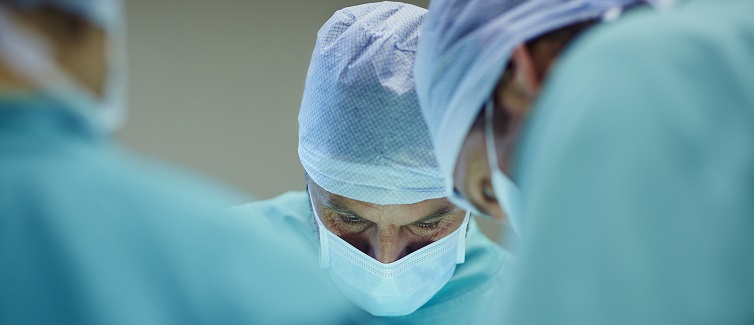A pediatric anesthesiologist is a highly trained doctor who keeps children safe and pain-free during medical procedures.
After earning an undergraduate degree, an anesthesiologist has 8 years of training (four years of medical school and four years of residency). Pediatric anesthesiologists receive an extra year of training in the unique needs of children, including babies.
Pediatric anesthesiologists talk to parents to understand their concerns as well as each child’s physical and emotional needs. They provide medications to take away pain during medical procedures. They also monitor children to make sure their bodies are responding well to the medications.
Never Miss a Beat!
Subscribe to Our HealthBeat Newsletter!
Thank you for subscribing!
You can now select the specific newsletters you'd like to receive.
You are already subscribed.
Subscribe to more newsletters in our email preference center.
Sorry, an error occurred. Please try again later.
Get Healthy Tips Sent to Your Phone!
What are the Benefits of a Pediatric Anesthesiologist?
An anesthesiologist needs to ensure children don’t feel pain during a medical procedure, and that key body functions continue to work well.
General anesthesia drugs can slow breathing and affect heart function and throat reflexes. The pediatric anesthesiologist uses monitoring equipment to make sure that a child’s heart, airway, and lungs continue to function well.
Thanks to their expertise, pediatric anesthesia is very safe. To ensure each child’s safety, the anesthesiologist:
- Determines all the factors that affect a child’s overall health, including current and previous conditions, medications, and allergies.
- Examines the child before a procedure, including checking their heart and breathing.
- Carefully monitors the child throughout the procedure, including oxygen levels, heart rate, and blood pressure, and adjusts medications as needed.
Other benefits of a pediatric anesthesiologist include:
- They know that children are not small adults and understand how children’s bodies function differently than adults.
- They know how children’s bodies function and change as the child grows and develops.
- They understand how diseases affect children differently.
- They know about conditions that are unique to children. This expertise helps your child’s anesthesiologist choose the best pain medications for each child.
- Their goal is to gain children’s trust, answer any questions children or parents may have, and take into account children’s emotions and stress levels.
What to Expect When Your Child Needs a Pediatric Anesthesiologist
Before a surgical procedure, your pediatric anesthesiologist will meet with you and your child. Here’s what they will do during this meeting:
- Discuss your child’s current health and past health conditions.
- Discuss your child’s emotional needs.
- Discuss your child’s past response to anesthesia.
- Review your child’s medical charts.
- Examine your child.
- Give advice about eating and drinking before and after the procedure.
- Explain what will happen during the procedure.
- Tell you what to expect as your child recovers from anesthesia.
Depending on the procedure, your child may go under general, regional, or local anesthesia — or a combination of these.
General anesthesia
Under general anesthesia, your child is completely asleep, feels no pain, and is unaware of their surroundings. The anesthesiologist and nursing team may give the medication intravenously or may have your child breathe anesthetic gas through a mask.
Regional anesthesia
When using regional anesthesia, the doctor injects medicines near nerves to numb a large area of the body. The doctor may combine this with general anesthesia to optimize pain relief both during and after the procedure.
Local anesthesia
Doctors use local anesthesia for minor procedures. Your child will be awake. The doctor will inject a small dose of pain medication into a small area.
If your child is anxious about a minor procedure, the anesthesiologist can also give general anesthesia medications. In small amounts, some of the anesthetics can relax or sedate your child without putting them totally to sleep.
After the procedure
Anesthesiologists help taper the medications so your child wakes up in comfort. They also help with managing pain after the procedure. Pediatric anesthesiologists also know the signs of pain in babies and young children who can’t communicate.
With a pediatric anesthesiologist, you get an advanced expert who focuses solely on children. Their goal is to keep your child safe, to keep them as comfortable as possible, and to reduce stress throughout your child’s hospital stay.
Editor's Note: This article was originally published on , and was last reviewed on .
Sources
About Pediatrics
From nutrition to illnesses, from athletics to school, children will face many challenges growing up. Parents often will make important health care decisions for them. We hope to help guide both of you in that journey. UPMC Children’s Hospital of Pittsburgh is a national leader in pediatric care, ranking consistently on U.S. News & World Report’s Best Children’s Hospitals Honor Roll. We provide expert treatment for pediatric diseases, along well-child visits, urgent care, and more. With locations across Pennsylvania, Maryland, and West Virginia, you can find world-class care close to home. We also work closely with UPMC Magee-Womens Hospital, a national leader in care for newborns and their mothers. Our goal is to provide the best care for your children, from birth to adulthood and beyond. Visit our website to find a doctor near you.

